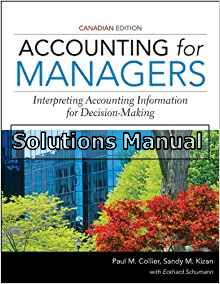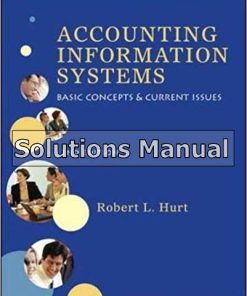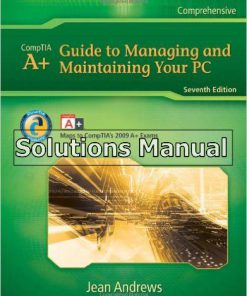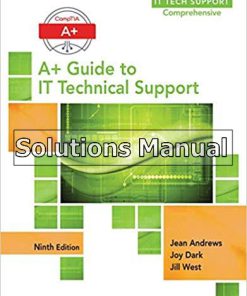Money Banking and Financial Markets 3rd Edition Cecchetti Solutions Manual
$26.50$50.00 (-47%)
Money Banking and Financial Markets 3rd Edition Cecchetti Solutions Manual.
You may also like
Money Banking and Financial Markets 3rd Edition Cecchetti Solutions Manual
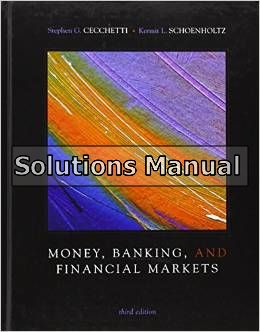
Product details:
- ISBN-10 : 0077627989
- ISBN-13 : 978-0077627980
- Author: Stephen G. Cecchetti, Kermit L. Schoenholtz
Cecchetti & Schoenholtz “Money, Banking, and Financial Markets,” 3rd edition offers a fresh, modern, and more student-friendly approach. Students will find the material relevant and interesting because of the books unique emphasis on the Five Core Principles, the early introduction of risk, and an integrated global perspective. By focusing on the big picture via core principles, Cecchetti & Schoenholtz teaches students the rationale for financial rules and institutional structure so that even when the financial system evolves, students knowledge will not be out of date. The worldwide financial crisis of 20072009 was the most severe since that of the 1930s, and the recession that followed was the most widespread and costly since the Great Depression. Around the world, it cost tens of millions of workers their jobs. In the United States, millions of families lost their homes and their wealth. To stem the crisis, governments and central banks took aggressive and, in many ways, unprecedented actions. As a result, change will be sweeping through the world of banking and financial markets for years to come. Just as the crisis is transforming the financial system and government policy, it is transforming the study of money and banking. Against this background, students who memorize the operational details of todays financial system are investing in a shortlived asset. Cecchetti & Schoenholtz “Money, Banking, and Financial Markets,” 3e focuses on the basic functions served by the financial system while deemphasizing its current structure and rules. Learning the economic rationale behind current financial tools, rules, and structures is much more valuable than concentrating on the tools, rules, and structures themselves. Students will gain the ability to understand and evaluate whatever financial innovations and developments they confront.
Table contents:
Chapter 3:Financial Instruments, Financial Markets, and Financial Institutions
Chapter 8:Stocks, Stock Markets, and Market Effi ciency
Chapter 14:Regulating the Financial System
Chapter 15:Central Banks in the World Today
Chapter 16: The Structure of Central Banks: The Federal Reserve and the European Central Bank
Chapter 17:The Central Bank Balance Sheet and the Money Supply Process
Chapter 18:Monetary Policy: Stabilizing the Domestic Economy
Chapter 19:Exchange-Rate Policy and the Central Bank
Chapter 20:Money Growth, Money Demand, and Modern Monetary Policy
Chapter 21:Output, Infllation, and Monetary Policy
Chapter 22:Understanding Business Cycle Fluctuations







